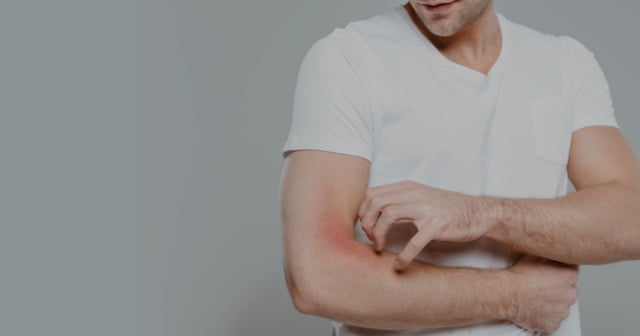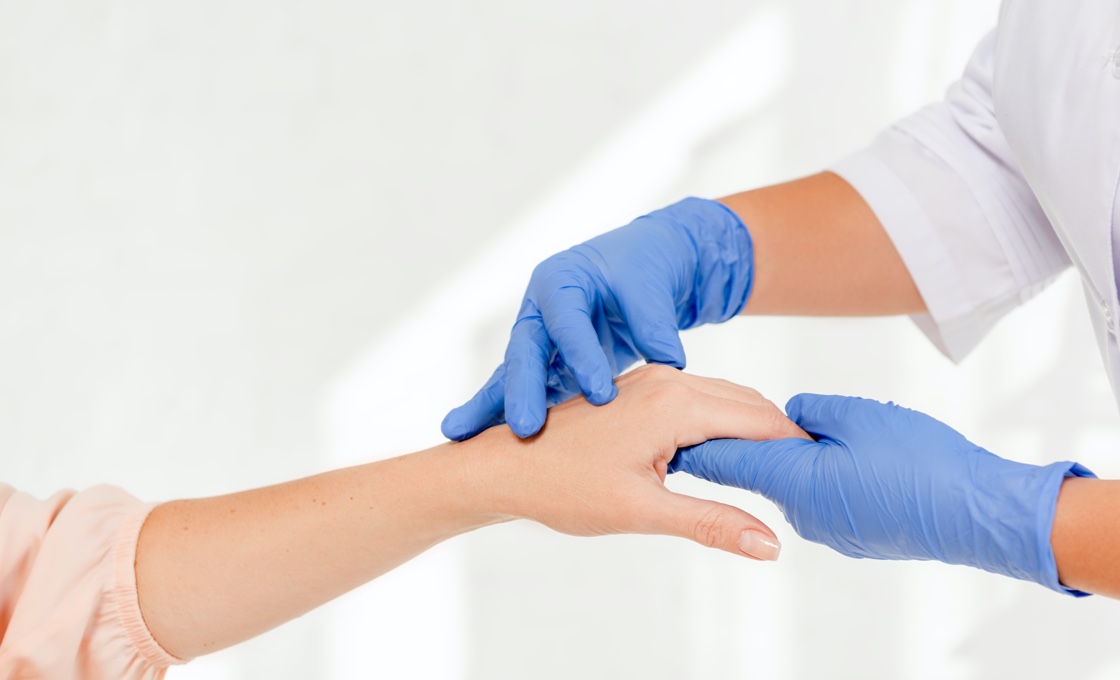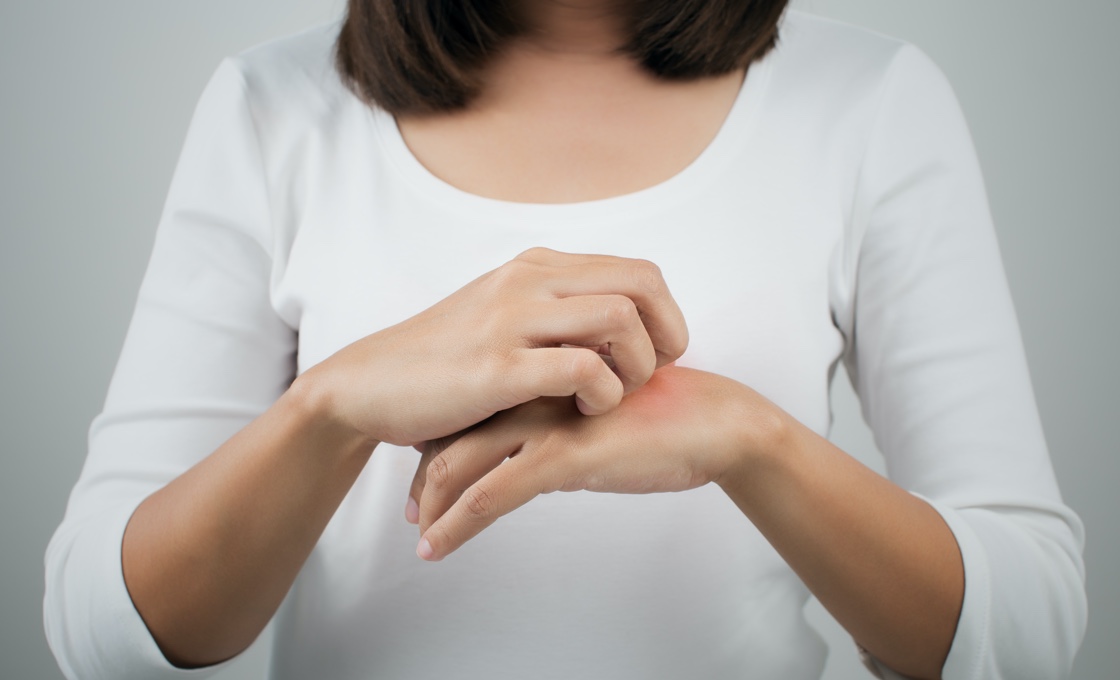

Scabies Treatment
in Johnstown, PA
What Are Scabies?
Scabies is a common, highly contagious skin condition that affects millions of people each year.
Scabies is an infestation of the skin caused by a microscopic bug called the human itch mite. This tiny mite burrows into the outer layers of skin where it lays eggs. The body develops an allergic reaction to the mites, causing a very itchy rash. The mites can easily travel from one person to another. Nursing homes, schools, and childcare centers are common areas where people can get infected.
REQUEST NOWWhat Are Scabies Symptoms?
Intense itching, primarily at night, is the most common symptom of scabies. The itching is so severe that it can keep you awake at night. Other scabies symptoms include a rash that has the appearance of tiny red bumps. These itchy bumps often form a line on the skin and may look like hives or pimples. Frequent scratching of the itchy rash can cause sores to develop. As the condition progresses, crusts or scales can form on the skin.
Scabies can develop anywhere on the body, although there are certain areas where the mites are more likely to burrow. If you have scabies, these are the most common parts of the body where you’re most likely to develop an itchy rash:
- Hands, especially between the fingers and around the nails
- Waist
- Thighs
- Armpits
- Arms, particularly the elbows and wrists
- Genitalia
- Buttocks

In children, scabies symptoms can appear on most areas of the body, but they typically can be seen on a child’s scalp, soles of the feet, or palms. Babies often have a rash on the soles of their feet and palms.

Diagnosing Scabies
Seeing a dermatologist is the first step toward diagnosing scabies. Your doctor will carefully examine your skin from head to toe. To confirm a diagnosis of scabies, your dermatologist may also remove a small amount of skin for examination under a microscope. If scabies mites or their eggs are detected in the skin sample, your dermatologist will develop a personalized treatment plan.
Is There a Scabies Cure?
Most people can achieve a scabies cure by using a topical prescription medicine on their skin. These creams and lotions are applied from the neck down to the soles of your feet. For young children and infants who have scabies, these topical treatments are applied to the scalp and forehead. The cream or lotion is left on the body for a recommended period of time, usually 8–14 hours, before washing it off.
A 5% permethrin cream is the most common treatment for scabies. Like other prescription topical treatments for scabies, permethrin cream works by killing the scabies mites and their eggs. Other topical treatments for scabies include 10% crotamiton cream, 25% benzyl benzoate lotion, sulfur (5%–10%) ointment, or 1% lindane lotion. Most patients only need a single treatment to successfully eliminate scabies mites, but occasionally two applications are needed.
If you have a resistant infection that doesn’t respond well to topical treatment, you may be prescribed Ivermectin, an oral antiparasitic drug. With only one dose, Ivermectin is an effective treatment for resistant scabies infections.
If you’re diagnosed with scabies, anyone who is in close contact with you also requires treatment. This includes everyone who lives in the same household and recent sexual partners. Treating everyone you’ve been in close contact with is the only way to prevent new outbreaks of scabies.

Tips for Scabies Prevention
The most effective method for scabies prevention is avoiding physical contact with an infected person and their personal items, especially bedding and clothing. Scabies mites can survive for several days without being on human skin. If any mites survive, it’s possible to get scabies again. To prevent a scabies infestation from happening again, it’s important to wash all of your bedding, clothes, washcloths, and towels on the same day you begin treatment.
It’s important to use the hottest water possible when washing these items, and you should also ensure that you’re using the hottest setting on your dryer. If an item can’t be washed or dried, you should seal it inside a plastic bag for a minimum of one week or take it to a dry cleaner. You should also vacuum your entire home.

1 Location in the Johnstown, PA area
Interested in Scabies? Request a consultation with a skin specialist today.
*Treatment options may vary at each location.Please confirm your desired treatment is offered at your preferred location when scheduling. *Age Restriction.
For patients scheduling who are under 18 years of age (19 in Alabama) please make sure you have permission from your parent or legal guardian to schedule this appointment. Your parent or legal guardian must accompany you on your initial visit and on certain subsequent visits to provide appropriate informed consent.